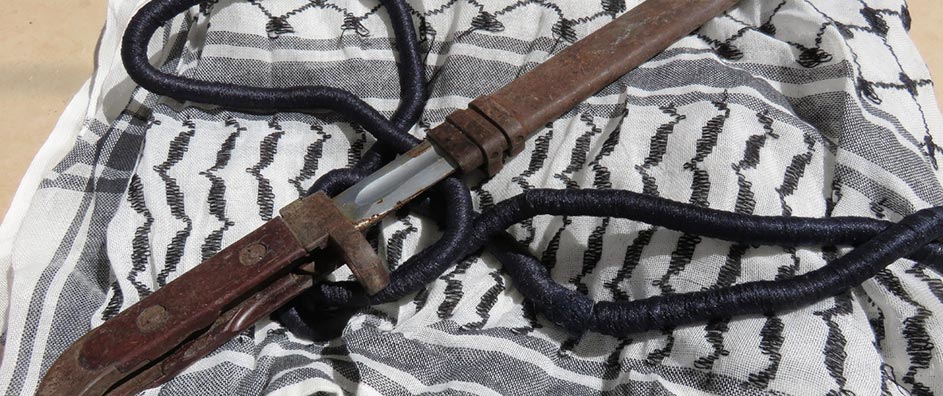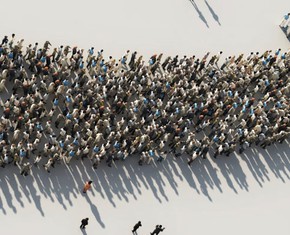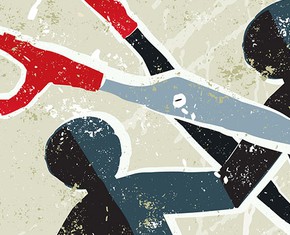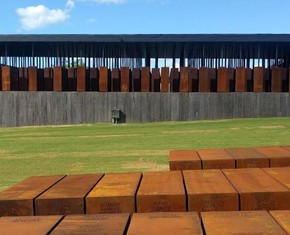The views expressed in our content reflect individual perspectives and do not represent the authoritative views of the Baha'i Faith.
You’ve undoubtedly heard about the concept of an Islamic Caliphate in the news a lot lately. But where did this idea come from? That question prompts some bigger questions about leadership—or lack thereof —in our times.
The Islamic State of Iraq and the Levant (ISIL) purportedly aims to create an ideal society that pivots around one particular—and strict—interpretation of Islamic Sharia law. There was a time when an advanced society based on those Islamic principles existed, but, historically, it bears slight resemblance to the violence perpetrated today in Islam’s name. And, alas, we hear little about the former society when the media overwhelms us with the latter messages..
In reality, early Islamic cultures made many of civilization’s greatest advances in mathematics, jurisprudence, scientific inquiry, higher education, and the arts. Some of the greatest libraries of all time, universities and hospitals (with free healthcare, incidentally) came about during Islam’s Golden Age, which lasted, roughly, from the 8th to the 13th centuries. In the West, our history books don’t contain much information about this flowering of culture and science—but many historians now agree that it had an enormous impact on the world, including supplying the knowledge and the wisdom to fuel the Renaissance.
As Abdul-Baha asserted in The Promulgation of Universal Peace:
What a great civilization was established in Spain by the Muslims! What a marvelous civilization was founded in Morocco by the Moors! What a powerful caliphate or successorship was set up in Baghdad! How much Islam served and furthered the cause of science!. – The Promulgation of Universal Peace, p. 347.
The passage above mentions a caliphate that contributed to the greater good. Regardless, you won’t find this concept in the Quran. Aydogan Vatandas, an investigative journalist from Turkey, notes that “nowhere in the Quran or hadith does it say that the duty of Muslims is to establish a caliphate and, in fact, the idea of an Islamic state did not exist prior to the 19th century.” – The Fountain, Nov./Dec. 2015.
Muslims refer to Abu Bakr, Umar, Uthman and Ali—the four leaders of Islam immediately after Muhammed’s death—as the “Four Rightly Guided Caliphs,” but they are not mentioned in the Quran either. Here’s the main reference to this term from the Quran:
God has promised those of you who have attained to faith and do righteous deeds that, of a certainty, He will make them Khulifa [Caliph] on earth, even as He caused [some of] those who lived before them to become Khulifa; and that, of a certainty, He will firmly establish for them the religion which He has been pleased to bestow on them; and that, of a certainty, He will cause their erstwhile state of fear to be replaced by a sense of security [seeing that] they worship Me [alone], not ascribing divine powers to aught beside Me. – Surah Al-Nur, Verse 55.
Obviously, this passage isn’t meant to be a political statement. Rather, it raises the status of any individual who has faith and would do “righteous deeds.” Islamic scripture says more regarding the qualities of good leaders, referencing the importance of justice as a basic principle for individuals and elected governors alike:
O you who believe! Be upright for Allah, bearers of witness with justice, and let not hatred of a people incite you not to act equitably; act equitably, that is nearer to piety, and be careful of (your duty to) Allah. – Surah Maidah 5:8.
In the Baha’i writings, you’ll find similar commentary on the qualities of those tasked with governing society:
Those souls who are employed in government should approach their duties with entire detachment, integrity and independence of spirit, and with complete consecration and sanctity of purpose. Content with the wages they are receiving, they should see that they do not stain their fair character through acts of bribery and fraud. Were one of the friends in this day to misappropriate so much as a single penny, the scattered mantle of God’s Cause would become sullied by his action and the shame of it would attach to the whole community. – Abdu’l-Baha, from a previously untranslated tablet, Lights of Guidance, p. 454.
The Baha’i teachings make it quite clear that a society cannot be rightly governed until its leaders develop spiritually and free themselves from corruption. You can find some of the most detailed work on this subject in a remarkable work by Abdul-Baha called The Secret of Divine Civilization:
It is obvious that not until the people are educated, not until public opinion is rightly focused, not until government officials, even minor ones, are free from even the least remnant of corruption, can the country be properly administered. Not until discipline, order and good government reach the degree where an individual, even if he should put forth his utmost efforts to do so, would still find himself unable to deviate by so much as a hair’s breadth from righteousness, can the desired reforms be regarded as fully established. Furthermore, any agency whatever, though it be the instrument of mankind’s greatest good, is capable of misuse. Its proper use or abuse depends on the varying degrees of enlightenment, capacity, faith, honesty, devotion and highmindedness of the leaders of public opinion. – The Secret of Divine Civilization, p. 16.
Many other spiritual traditions echo these same concepts. Confucius, for example, never claimed divine inspiration for his teachings, but his whole philosophy, which now guides much of the political theory in East Asia, centered on calling society’s leaders to behave with honor and to strive for moral self-perfection. In referring to the characteristics of a superior man, for example, Confucius noted in the Analects that:
…in his conduct of himself, he was humble; in serving his superiors, he was respectful; in nourishing the people, he was kind; in ordering the people, he was just.
The particulars of an Islamic Caliphate aside, many of today’s ruling elite have deviated from the standards of leadership echoed in most religious and philosophical texts. The best guidelines will never succeed when put in the hands of corrupt leaders intent upon their own enrichment and political control, especially when gained through violence and warfare. Lest we think this is just a problem with ISIL’s leaders, one can point to the sad consequences of what support for corrupt dictators has done to many countries in Africa, to the corrupting impact of money on Western governments, or political candidates whose main goal involves elevating their own egos.
Have our standards really sunk so low? Maybe each one of us has to start expecting a lot more from our leaders, especially when it comes to moral character. Alternatively, as Jesus Christ said so well, “If the blind lead the blind, both shall fall in the ditch.”
















Comments
Sign in or create an account
Continue with Googleor